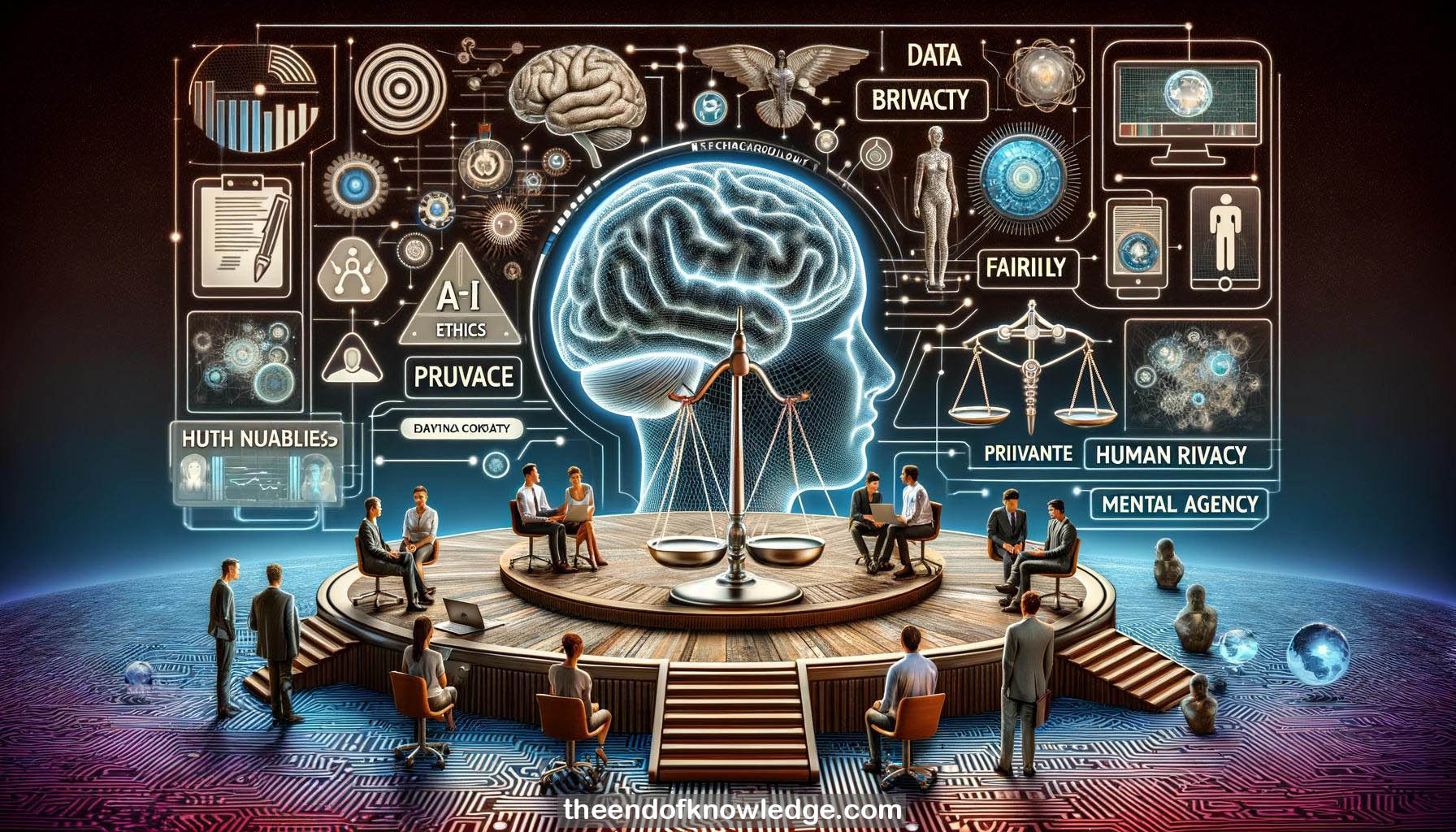 >
>
Concept Graph & Resume using Claude 3 Opus | Chat GPT4o | Llama 3:
Resume:
1.- Neurotechnology (neurotech) collects, interprets, infers, or modifies nervous system data. It's an emerging technology with potential to transform many aspects of life.
2.- Neurotech is classified by invasiveness (implanted vs wearable) and capabilities (sensing, modulating, or both). Location of interface is less important.
3.- Neurotechnologies that exist in some form today: reading thoughts/actions, visualizing imagery, changing sensations/perceptions, sharing emotions/memories. Maturity and accuracy vary.
4.- Neurotech has applications in healthcare, marketing, entertainment, defense, law. Examples: treating illness, monitoring fatigue/attention, restoring sensation, enabling mind-typing.
5.- Neuroethics studies ethical principles and implications related to neurotech, neurodata, and neuroscience. It involves applying ethics to change practices and policies.
6.- Context of neurotech creation and use significantly impacts ethical considerations. Key questions: what data, intended use, who, how, for whom.
7.- Some neurotech challenges are common to other technologies (security, accuracy, sustainability). Others are heightened due to complexity/sensitivity (privacy, agency, identity).
8.- Neurotech rarely operates alone - it requires and intersects with AI/ML, especially as datasets get larger, more complex, and collected outside labs.
9.- AI started 60+ years ago with humans coding intelligent problem-solving. 1980s introduced data-driven machine learning. Computing power enables current AI success.
10.- AI is found in digital assistants, transportation, customer service, media, healthcare, finance, jobs, law. It's used in high-stakes decision making.
11.- AI limitations include narrow specialization, lack of robustness/adaptability to tweaked inputs, and high computing resource needs which creates power imbalances.
12.- AI ethics issues include data privacy, fairness, discrimination, transparency, accountability, social impact, human agency, explainability. External audits and regulations address this.
13.- Neuroethics issues include privacy, fairness, access, profiling, manipulation, societal impact, human autonomy/agency, identity, accuracy, security, well-being.
14.- AI ethics has evolved through phases of awareness, published principles, and now practice with regulations, standards, corporate practices, and education.
15.- AI can advance or detract from the UN Sustainable Development Goals. Impacts must be carefully considered.
16.- AI ethics lessons: multi-stakeholder approach, principles aren't sufficient, company-wide practices, technical + non-technical solutions, mistakes are part of the process.
17.- Neurotech introduces expanded concerns around data, explainability, accountability, fairness, access, profiling, manipulation, privacy, autonomy, agency, identity, accuracy, security, well-being.
18.- AI and neuroscience communities have different histories with human/animal data ethics. Collaboration is needed to address converging neurotech and AI ethics issues.
19.- AI and neuroscience experts need to prepare for the convergence of AI and neurotech by updating frameworks, engaging stakeholders, and considering affected communities.
20.- Key takeaways: neurotech is coming, it rarely operates without AI, and this introduces expanded ethical issues that require multi-stakeholder collaboration to address.
Knowledge Vault built byDavid Vivancos 2024